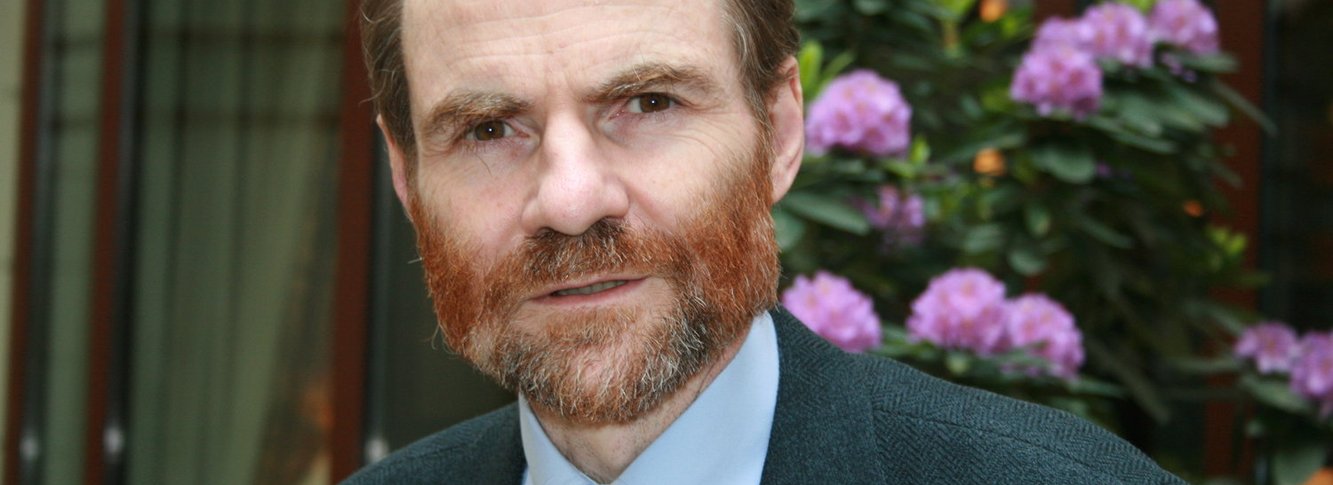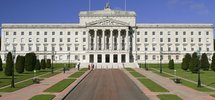| 14 mins read
Anya Pearson interviews Timothy Garton Ash, Professor of European Studies at Oxford University and Guardian columnist, after he delivered the Political Quarterly's lecture 'What went wrong with liberalism? And what should liberals do about it?'
Anya Pearson: As we grapple with anti-liberal populism and authoritarianism, one of the questions you address in your lecture is how far liberalism contributed to its own crisis. You dig deep into the characteristics of contemporary liberalism – your ‘charge sheet’ as you call it – including the fact that a) that we allowed liberalism to be reduced to economic liberalism b) liberalism has failed so many, especially poor people, c) ‘illiberal liberalism’ has become a great problem. What are the origins and symptoms of illiberal liberalism?
TGA: So obviously in every case you have to ask, ‘which liberalism was it?’ because liberalism is an extended family of practices, ideologies and philosophies. I think the bigger problem in scale has to do with the reduction of liberalism to economic liberalism which left a lot of people behind. It also had a cultural dimension in that it brought a lot of people into higher education. You had a dividing line around higher education; metropolitan, liberal people against closed.
A small part of this is what I call ‘illiberal liberalism’. An example of it would be a speaker like Germaine Greer or Julie Bindel being ‘no platformed’ at a British university because of their views on transgender people. What is behind that is a sense that people can only be exposed to a range of liberal views, and that it could be damaging, not just offensive, for people to be confronted with controversial, difficult views. That’s illiberal liberalism.
The idea that liberals should only listen to other liberals is a profoundly illiberal idea. One of the key ideas in John Stuart Mill’s On Liberty is what liberals should do is listen to the widest possible range of views, including grossly offensive ones, to challenge ourselves in our own views, maybe we may even find a grain of truth in those other views. What illiberal liberalism contributes to is a sense in a wider society that people aren’t allowed to say what they think. They’ll be prosecuted under hate speech laws or they’ll be ostracised or condemned in the media. And that is a feeling on which Trump, Brexit and populists everywhere really feed.
AP: These days, who or what is a liberal? You mention that it’s far more diverse than simply economic liberalism; an extended family. Do you feel able to define it?
TGA: What all genuine liberalism has in common is it attaches a very high value to the liberty of the individual. That’s a necessary defining feature of liberalism. You go out from that and there are different recipes for how that might be possible. There’s no way, in my view, of seriously contesting that libertarianism or neoliberalism is a version of liberalism, which puts a very high value on property rights, economic liberty, leaving things to the market. But equally, there’s a very strong strand of modern egalitarian liberalism which says in order for people in any meaningful sense to be free, they have to have certain basic capabilities. They have to have enough to eat, they have to have a roof over their head, basic medical care, a decent education and so on. A lot of modern egalitarian liberalism is going in that direction.
One could argue that the trouble is we had the first kind of liberalism I described, rather than the second, and neglected the other social and cultural needs that arguably are necessary for people to genuinely enjoy liberty. We’ve ended up with liberty for the few, rather than for the many.
AP: That brings us onto the idea that liberalism has failed certain sections of our society. Who has liberalism failed and why?
TGA: In the broadest sense, I think you could say that the kind of liberalism we have in Britain, America and so on has to some degree failed what you might loosely call ‘the other half’ of society. That can be defined socioeconomically – the people whose real wages gone down rather than up since the 2008 crisis, the people who got worse off while the rich have become much better off – but it can also be defined educationally, the half of society more of less has gone into higher education, lives in cities, enjoys travel, likes immigration and open society, and the half that resides in poor post-industrial cities in different parts of our countries with poor prospects who feel threatened by immigration.
It can be defined by what I call ‘inequality of attention’. I think there’s a really important point that what you see with the Trump vote and the Brexit vote; there are large parts of society who just feel they have not being even noticed, by mainstream media, metropolitian elites, let alone respected. If you want to put simplest, we’ve neglected the other half of our own society.
Maybe this is to the benefit of the other half of the world, by the way. It’s important to say that these same developments – financialisation, globalisation, open markets, open borders, from which less well-educated working class Brits and Americans have in part suffered, has also benefited working class Chinese and Indians. The utilitarian approach which looks for the greatest happiness for the greatest number globally neglects the national balance sheet, in particular the regional balance sheet. It’s very often particular regions of the country like the North of England, or the rust belt in the US, that does particularly badly out of liberal hegemony.
AP: Talking about regional and even intra-borough inequality, you mentioned the Grenfell tower fire which symbolises economic inequality within the London Borough of Kensington and Chelsea. You argue that this speaks volumes about the inequality of attention and respect. Thinking about an increasingly polarised London – a ‘tale of two cities’ with extreme poverty and extreme wealth – do you think a city like London can provide the kind of environment liberalism needs to function well?
TGA: First of all, London is a shining example of living with a multicultural society without making mistakes of the ideology of multicuturalism. For the most part, London is place where people rub along together wherever people they came from. It has endless multiple, mixed identities. We’re all Londoners. On the whole, I think that’s a success story. What is not a success story are the socioeconomic divides, which were absolutely captured by the terrible tragedy of Grenfell tower.
My answer is I don’t think London on its own can [provide the appropriate environment for successful Liberalism], but I think for want of a better term, middle class liberals recognise what has gone wrong, and give us a politics which is frankly more redistributive of attention and respect, as well as money. I think London is actually one of the places which has the best chances of doing it well. But it’s got to be a different politics.
A politics which, in an odd way, has to be both more left wing and more right wing at the same time. It has to be more left wing in paying more attention to economic equality and social solidarity, but it has to be right wing in a sense in addressing deep concerns about community and identity. People genuinely feel threatened by rapid social change. We liberals cannot leave the nation to the nationalists. When I say nation, I mean not just Britain but England. With the World Cup, who could doubt that the English identity is a fantastically powerful emotional force? England is something too important to be left to UKIP.
AP: A common force uniting people is certainly something we currently lack outside of the World Cup.
TGA: I think there can be several forces. You can have European identity, an environmentalist identity and so on. But not to the exclusion of the nation. You only needed to watch the World Cup to see just how strong national identity still is. And it doesn’t have to be reactionary. In my view, we have to keep working on a liberal patriotism.
You said a movement needs an idea (Keynes), an analysis (Beveridge) and a programme (1945). What do you see as being the most valuable ideas emerging from the centre left at the moment?
Well, I don’t think we’re there yet. Wherever you look, Western democracy is in crisis, be it US democrats, the French socialists, FPD? in Germany, Labour here, everywhere. I think that citizenship, identity, liberal patriotism is an important area. Sunder Katwala, for example, is working on a modern national identity.
What’s also absolutely crucial is the future of work. Because the fact is that the populists say ‘you’ve lost your job because of the immigrants’. In fact, you’ve probably lost it because of the digital revolution and technological change. That is accelerating and there is going to be more upheaval in the world of work. We are going to have to think about really quite radical solutions, like Universal Basic Income, a basic job guarantee, something of this kind. Something which to many people will sound like socialism. Because I just don’t think that at least for the foreseeable future, there are going to be enough jobs to go around.
AP: To what extent should we see Macron as offering a valid form of the kind of revised liberalism you recommend? Has Macron really taken on board the damaging consequences of economic liberalism that you emphasised during the lecture?
TGA: His problem is that he hasn’t had a Thatcher before him. Thatcher already did the brutal deregulatory things: breaking the power of the unions, freeing up labour markets. Blair and New Labour could add into that a strong dimension of social justice and a larger role for the state. But Macron genuinely has an already bloated state and public spending. So he’s looking rather Thatcherite.
However, the hope is that once he’s done these things – some of which are clearly necessary – he will turn to the left, maybe before the next election. What I like about him is that he’s genuinely broken the mould. He keeps doing new combinations of Europeanism and patriotism, of globalism and localism, of the kind that I think we need. He is in the right general territory. Whether he actually succeeds is about French politics and French traditions.
AP: My final question: why are you still a liberal?
TGA: There’s a wonderful song, the refrain of which is:
Je suis comme je suis
Je suis faite comme ça
Je plais à qui je plais
Que voulez-vous de moi
It’s actually sung by a lady of the night, but never mind... And in a way that’s the answer. I am as I am. I am actually a lifelong liberal. My political evolution is very boring, because I became a liberal as a student and have been ever since.
A more philosophical answer is that I still think that liberalism is the worst possible system apart from all the other systems that have been tried from time to time! It’s very easy in these times to ignore the extraordinary progress that has been made in European society over the last fifty years. It’s dramatic in Eastern Europe, which is close to my heart. Generations of people are free who were not free before, it’s as simple as that. But even our own society, with all its problems, is a much more genuinely liberal, tolerant society than it was fifty years ago. There’s a lot that liberals can still be proud of.
Anya Pearson is Social Media and Events Editor at the Political Quarterly.
Listen to Timothy Garton Ash's lecture for the Political Quarterly:







